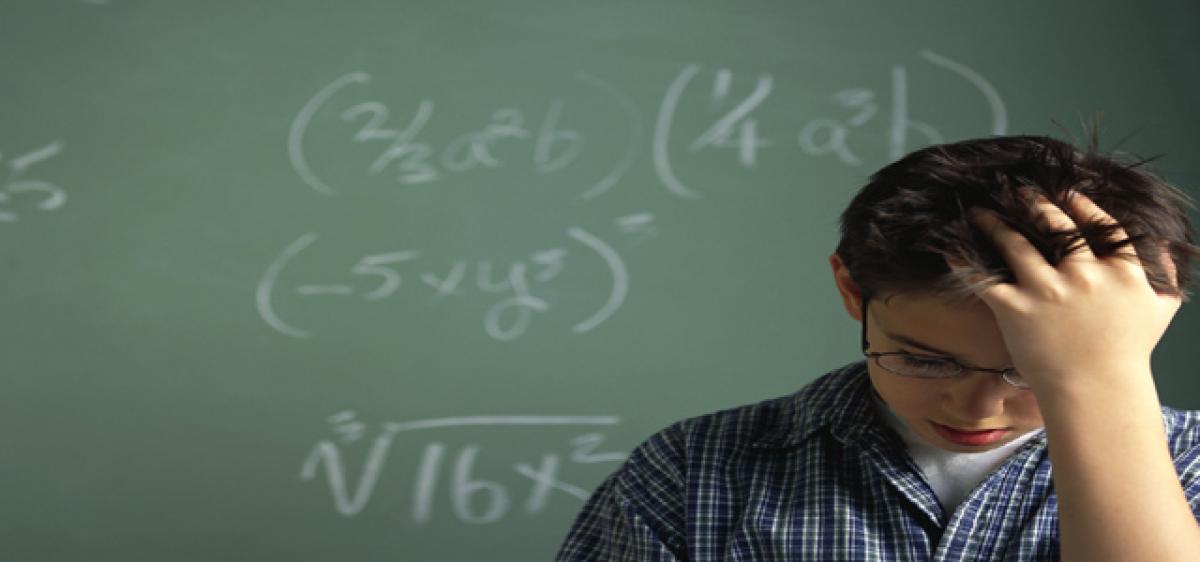Live
- SBI rescues sr citizen from `46L cyber fraud
- 12-yr-old dies of electrocution
- Installation of smart meters opposed
- State Cabinet expansion in focus as CM leaves for Delhi
- Need to reintroduce country’s forgotten pride: Bhagwat
- Pant shatters Iyer's IPL auction record, sold to Super Giants for Rs 27 cr
- Yuva Sangeetha Sammelanam held
- Dharani proves a bane for 25K families across State
- Reckless, Dangerous Arms Race
- Russia needs a peace deal as it is running out of soldiers
Just In

Children differ substantially in their mathematical abilities. But, some may remain persistently bad at addition or subtraction as a result of abnormalities in the brain areas supporting procedural memory, a study that developed a theory of how developmental \"math disability\" occurs has revealed.
New York: Children differ substantially in their mathematical abilities. But, some may remain persistently bad at addition or subtraction as a result of abnormalities in the brain areas supporting procedural memory, a study that developed a theory of how developmental "math disability" occurs has revealed.
Procedural memory is a learning and memory system that is crucial for the automatisation of non-conscious skills, such as driving or grammar and depends on a network of brain structures, including the basal ganglia and regions in the frontal and parietal lobes, the study said.
"Various domains, including math, reading, and language, seems to depend on both procedural as well as declarative memory -- where conscious knowledge is learned," said Michael T. Ullman, Professor at the Georgetown University in the US.
"However, for some children with math disability, procedural memory may be dysfunctioned, so math skills may not get automatised," added lead author Tanya M. Evans, postdoctoral student at the Stanford University in the US.
In fact, the aspects of math that tend to be automatised, such as arithmetic, are more problematic in children with math disability.
Evidence suggests that when procedural memory is impaired, children may have math disability, dyslexia, or developmental language disorder, though declarative memory -- where conscious knowledge is learned -- often compensates to some extent," Ullman said.
The researchers said that their theory, called the procedural deficit hypothesis of math disability, "offers a powerful, brain-based approach for understanding the disorder, and could help guide future research."
"We believe that understanding the role of memory systems in these disorders should lead to diagnostic advances and possible targets for interventions," Ullman noted, in the paper published in the journal Frontiers in Psychology.

© 2024 Hyderabad Media House Limited/The Hans India. All rights reserved. Powered by hocalwire.com







